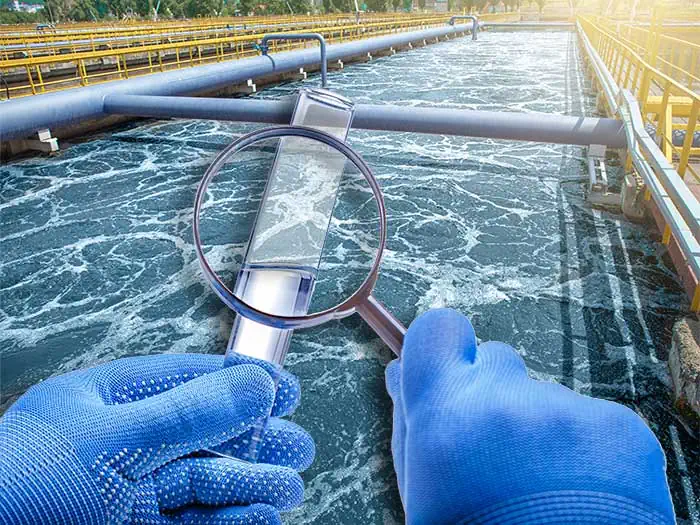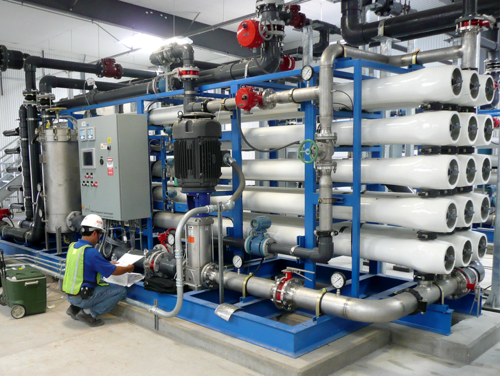Comprehensive PFAS Management in Agricultural Areas
Comprehensive PFAS Management in Agricultural Areas
Blog Article
Just How PFAS Treatment Guarantees Clean and Sustainable Water
The visibility of PFAS, commonly understood as "forever chemicals," positions considerable challenges to water high quality and public wellness. The ramifications of these treatments prolong beyond prompt health benefits; they raise critical questions regarding long-term water management techniques that should be dealt with to guarantee a resistant future.

Comprehending PFAS Contamination
PFAS, or per- and polyfluoroalkyl substances, have actually become a substantial ecological problem as a result of their extensive occurrence and persistence in the setting. These synthetic chemicals have actually been utilized in numerous industrial applications and customer items, including non-stick cookware, waterproof clothing, and food product packaging, because of their one-of-a-kind residential properties such as water and grease resistance.
The contamination of dirt and water sources by PFAS occurs mostly via commercial discharges, firefighting foam usage, and leaching from landfills. pfas management. As soon as released, these materials are resistant to destruction, leading to their accumulation in the environment. This persistence raises essential concerns, as PFAS can take a trip fars away via groundwater and surface water supply, influencing drinking water materials and ecological communities

Wellness Risks of PFAS
The determination of PFAS in the atmosphere raises significant health concerns for individuals exposed to these substances. Study has connected PFAS exposure to numerous negative health results, including immune system disorder, liver damage, and boosted risk of particular cancers.
The universality of PFAS in consumer items, such as non-stick pots and pans, water-repellent textiles, and food packaging, more amplifies the risk of direct exposure. Drinking water polluted with PFAS is a considerable problem, as these chemicals can leach right into groundwater sources. Prone populaces, consisting of kids and those living near commercial websites, may encounter increased threats due to their establishing systems and possible for higher exposure degrees.
As awareness of these health and wellness threats remains to grow, governing agencies are beginning to develop standards for PFAS levels in alcohol consumption water. Public health efforts are important to alleviate exposure and secure communities from the long-lasting effects of these unsafe compounds.

Cutting-edge Therapy Technologies
Exactly how can we efficiently take on the difficulties positioned by PFAS contamination in water sources? Ingenious therapy innovations are becoming critical options in the quest for tidy water. These techniques focus on the elimination or destruction of per- and polyfluoroalkyl materials (PFAS), which are well-known for their persistence in the setting.
One appealing approach is adsorption utilizing advanced materials, such as turned on carbon and ion exchange resins. These products have revealed efficacy in recording PFAS particles from water. One more notable modern technology is membrane filtration, which makes use of nanofiltration and reverse osmosis to different contaminants at the molecular level, hence giving an obstacle versus PFAS.
Additionally, advanced oxidation procedures (AOPs) use solid oxidants to damage down PFAS substances right into harmless by-products. This technique is specifically reliable for treating highly polluted water sources. Bioremediation methods, utilizing details microbes, are also being explored to deteriorate PFAS.
As research study continues, hybrid systems that integrate several innovations might use boosted efficiency, resolving the intricacies of PFAS contamination. The growth and execution of these cutting-edge therapy modern technologies are important steps toward guaranteeing the safety and sustainability of our water resources.
Advantages of Reliable PFAS Therapy
Efficiently dealing with PFAS contamination in water resources substantially enhances public health and environmental safety. PFAS, usually described as "forever visite site chemicals," are resistant to destruction and can build up in the body, bring about severe health threats such as cancer, liver damage, and body immune system dysfunction. By applying efficient treatment approaches, neighborhoods can reduce direct exposure to these hazardous materials, eventually improving the wellness results of their populaces.
Additionally, successful PFAS therapy over at this website adds to the preservation of neighborhood ecological communities. Infected water can negatively influence water life and disrupt the fragile balance of neighborhood habitats. By ensuring clean water, treatment processes shield biodiversity and preserve ecological honesty.
Furthermore, effective PFAS removal can cultivate public confidence in water quality. When neighborhoods are assured that their alcohol consumption water is devoid of hazardous pollutants, it promotes a feeling of safety and security and wellness. This trust fund is important for area engagement and assistance for recurring water management efforts.
Future of Water Sustainability
In the middle of growing problems about water quality and shortage, the future of water sustainability depends upon cutting-edge methods and joint efforts. As areas face the looming hazards of contaminants like PFAS, the development of sophisticated therapy technologies is vital. These modern technologies not only focus on the elimination of hazardous materials but likewise advertise the reuse and recycling of water, consequently reducing overall need.
In addition, reliable water administration plays a crucial duty in ensuring sustainable practices. Policymakers must incorporate clinical study with governing structures to establish clear guidelines for water use and therapy. Stakeholder interaction, including local communities and sectors, promotes a sense of shared obligation and urges sustainable practices throughout numerous markets.
Investment in infrastructure is additionally essential; updating aging systems to integrate modern purification and filtration techniques can considerably enhance water top quality. Moreover, accepting green modern technologies, such as natural try here purification systems, can supply environment-friendly services.
Eventually, the future of water sustainability hinges on an alternative approach that integrates technology, plan, and community involvement. By focusing on these elements, we can guard our water resources for generations to find, ensuring clean and lasting water for all.
Conclusion
To conclude, the reliable treatment of PFAS is crucial for guaranteeing tidy and sustainable water. By utilizing innovative technologies such as triggered carbon adsorption, membrane layer filtration, and advanced oxidation procedures, communities can substantially lower the health dangers related to these impurities. In addition, the combination of these treatment approaches supports environment defense and enhances biodiversity. Ultimately, robust PFAS therapy approaches add to long-term resilience in water management, promoting public count on water top quality and advertising lasting techniques.
Report this page